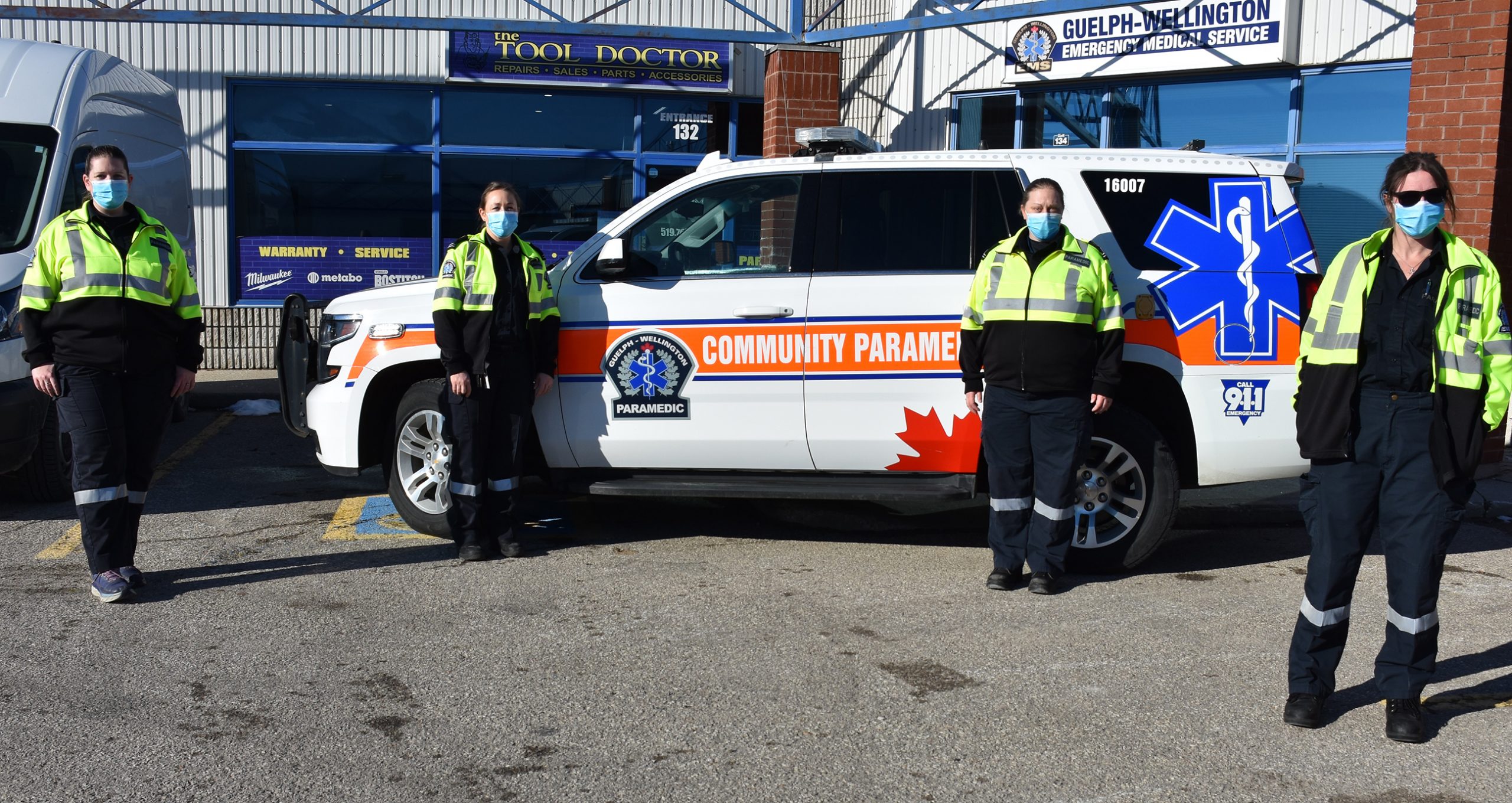WELLINGTON COUNTY – A program launched by local paramedics in 2016 to monitor patients with chronic diseases in their homes, is helping to fill a gap in staffing at Caressant Care in Arthur as COVID-19 is spreading through the facility.
Caressant Care Arthur has been in outbreak in the retirement wing since Dec. 12 and the long-term care wing since Dec. 26.
As of Jan. 8, the facility was reporting one death and 52 positive COVID-19 cases – 21 staff and 31 residents.
Brad Jackson, community paramedicine coordinator for Guelph Wellington Paramedic Service (GWPS), said in a phone interview on Jan. 7 this is the first time the remote patient monitoring program is being used in a retirement home.
“Caressant Care is our first experience with it,” Jackson said.
“We’re not replacing staff in the home but helping to build capacity. The experience will be evaluated and it’s possible it could be used at other retirement homes as well.”
Paramedics with special training – called community paramedics – do more than just respond to 911 calls.
They will check in on patients after they are discharged from hospital, or with people who have chronic health conditions, in an effort to keep them well and out of hospital and emergency departments.
“Many people with chronic illness, such as congestive heart failure, chronic obstructive pulmonary disease, and diabetes can be managed in their own homes with proper monitoring,” Jackson said.
Through the remote patient monitoring program, these patients are given devices and they take their own vital signs that paramedics can review from the station in Guelph.
The community paramedics also call the patients to check on their well-being.
Sometimes paramedics can detect a problem before the patient does, said Emily Cooper, who coordinates the program with Jackson.
In those cases, the rapid response nursing team may be notified, or an ambulance dispatched even while the patient is being called, depending on what the paramedic teams sees.
“This is very different from the 911 role,” Cooper said. “(The program) gives the patient access to a paramedic 24/7.
“We connect people to resources, to nursing and to primary care when necessary.”
She added, “Without us, (the patient) might call 911 or go to the ER or their family doctor. Or they might do nothing and pass away at home. We’ve had a couple of close calls.”
The program expanded this past fall to include COVID-19 patients with minor symptoms recovering in their own homes.
Cooper said already 200 people have been through the COVID program in the past two-and-a-half months.
“COVID can progress quickly,” Cooper said. “You can feel okay and then suddenly become quite sick.”
Jackson said the GWPS remote patient monitoring program has shown a 532 per cent return on investment since 2016 – and that’s before COVID-19 is taken into account.
“After the first wave, we started planning for the second wave,” he said.
“We thought there could be an opportunity to apply the program to COVID patients recovering at home. We hope to see the same outcomes.”
COVID-19 patients are monitored by the paramedic team for 14 days after a positive test or for three days after symptoms go away.
“We provide wrap-around care and support and can catch things before they deteriorate,” Jackson said.
He noted he was contacted by the Wellington Health Care Alliance when the outbreak at Caressant Care Arthur began, wondering if the community paramedics could help monitor residents in the home.
“We went in Dec. 18 and as (the number of patients) grew, we stuck with it,” said Jackson.
Caressant Care Nursing and Retirement Home spokesperson Stuart Oakley stated in an email said the Arthur facility is “grateful for the assistance of the local paramedic service,” which is “helping with remote patient monitoring of 12 retirement home residents.”
Because there is staff at the Arthur facility, the program is working a little differently than the patient-at-home scenario, Jackson said.
Staff at the home conducts daily assessments, the paramedics monitor patients remotely throughout the day and night, and the two teams hold case management meetings to collaborate on solutions.
The Waterloo Wellington Local Health Integration Network also has a rapid response nursing team “and between the three organizations, it’s been a collaborative and productive venture,” Jackson said.
Paramedics have also been helping at COVID-19 assessment centres and have been taking swabs at retirement homes as well.
“It’s had a positive impact,” said Carrie Gordon, one of the community paramedics in the program.
“The gratitude from patients has been profuse. More than anything, we hear how much people appreciate the peace of mind.”
GWPS chief Stephen Dewar said he is “very proud of our team members who have stepped up to help with the situation in Arthur and in other ways to assist during the pandemic.”




